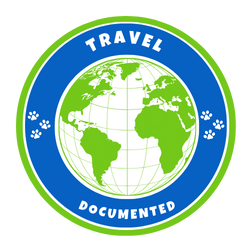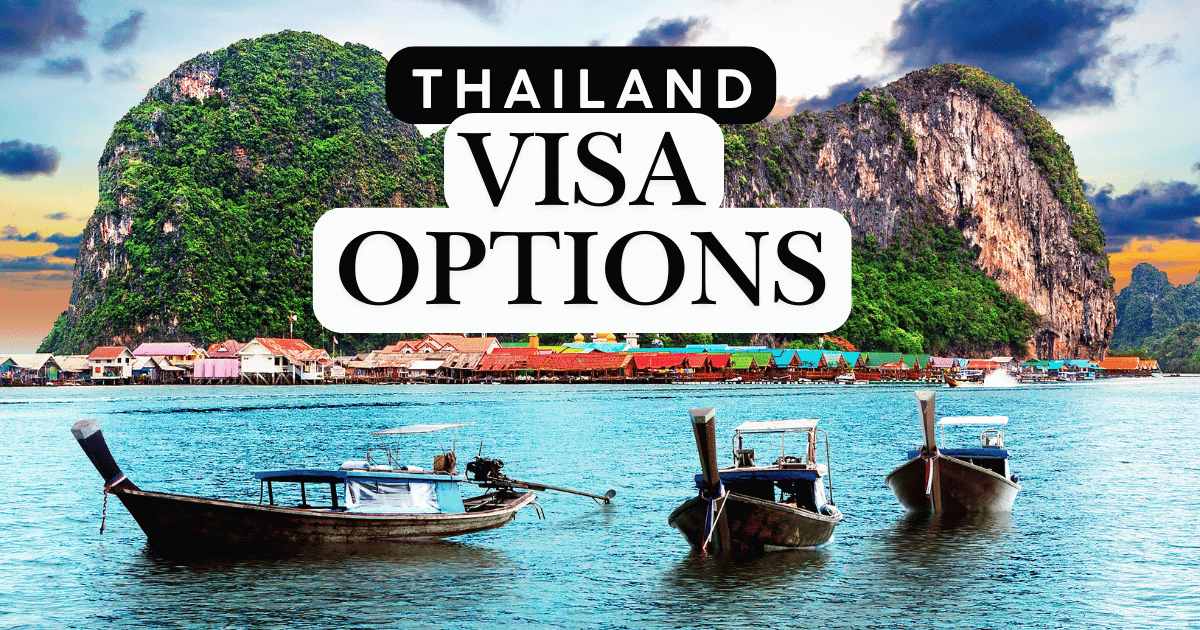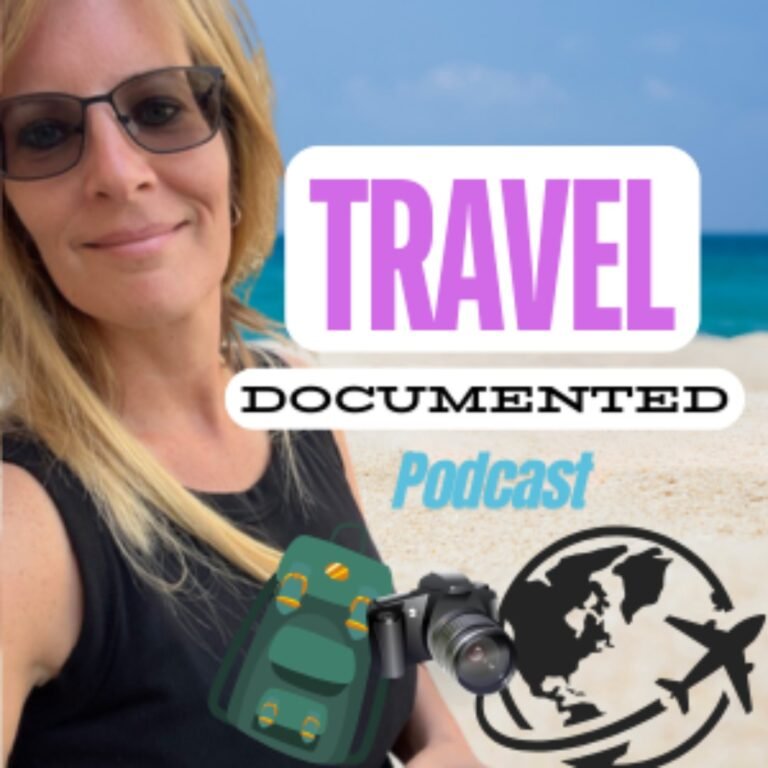5 Key Thai Visa Options: Everything US Citizens Need to Know
5 Key Thai Visa Options: Everything US Citizens Need to Know Facebook Youtube Tiktok Instagram Thai Visa Options Thinking about swapping American highways for the laid-back streets of Bangkok or the tranquil beaches of Phuket? Thailand is a magnet for expats and travelers alike, thanks to its vibrant culture,…
5 Key Thai Visa Options: Everything US Citizens Need to Know
Thai Visa Options
Thinking about swapping American highways for the laid-back streets of Bangkok or the tranquil beaches of Phuket? Thailand is a magnet for expats and travelers alike, thanks to its vibrant culture, stunning landscapes, and wallet-friendly lifestyle. But before you pack your flip-flops and sunscreen, it’s crucial to understand which visa suits you best. Below, we’ll explore five key Thai visa options, walk through the basics of applying, and share practical tips to help you make the most of your time in the Land of Smiles.
Why Thailand?
Thailand truly offers something for everyone—from the fast-paced city life in Bangkok to the mountains of Chiang Mai and the stunning islands down south. Beyond the natural beauty, Americans often appreciate Thailand’s warm climate, welcoming culture, and relatively low cost of living. English is spoken in many tourist spots and urban centers, making day-to-day life manageable, even if you’re not fluent in Thai.
Tourist Visa (Single-Entry or Multiple-Entry)
If you’re looking for a short-term stay, the Tourist Visa is a go-to choice. A single-entry Tourist Visa usually grants 60 days, extendable by 30 more days at a local immigration office. For repeat visitors, the multiple-entry Tourist Visa allows several entries over six months. Just keep in mind this visa is strictly for tourism—working or earning money in Thailand on a Tourist Visa is not permitted.
Non-Immigrant B (Business Visa)
For those wanting to work or start a business, the Non-Immigrant B Visa is key. You’ll often need an offer from a Thai company or proof of your own business plans. Once in Thailand, you’ll generally need a work permit to operate legally in the country. If your goal is to earn a living—whether teaching English or running a startup—this visa sets you on the right track.
Non-Immigrant O (Retirement or Family)
Thinking of retiring in Thailand? The Non-Immigrant O Visa is popular among Americans over 50, as it allows you to stay in the country long-term if you meet specific financial criteria. Applicants typically need to demonstrate financial stability by showing a monthly income of at least 65,000 Thai Baht (approximately $1,900 USD) or by maintaining a Thai bank account with a minimum balance of 800,000 THB (roughly $23,200 USD) for at least two months prior to the application. This financial proof reassures immigration authorities that you can support yourself during your stay. For those applying based on family connections, similar income requirements may apply to ensure that all dependents are adequately supported.
Non-Immigrant ED (Education Visa)
If you plan to learn Thai, enroll in a university program, or take specialized courses, the Non-Immigrant ED Visa is your best bet. Many language schools in Thailand will guide you through the application process, making it fairly straightforward. It’s a great option if you want to immerse yourself in Thai culture through education—or simply keep your mind active while you explore a new country.
Thai Elite Visa
For travelers or expats seeking a more premium experience, the Thai Elite Visa acts like a VIP pass to the country. It offers multiple years of hassle-free stays, along with perks like expedited airport services and access to exclusive events. However, it comes with a steep membership fee that varies by package—often ranging from a hundred thousand to over a million Thai Baht—rather than an ongoing income requirement.
If you have the budget and value convenience, this long-term option can save you the headache of frequent visa renewals.
Application Process and Essential Paperwork
Though each visa type has unique requirements, there are a few basics you’ll likely need:
- Valid Passport: It should be valid for at least six months beyond your planned stay and have enough empty pages for visa stamps.
- Application Forms: Typically found on the official Royal Thai Embassy or Consulate website in your region.
- Proof of Funds: Depending on the visa, you may need to show bank statements, pay stubs, or other documents proving financial stability.
- Travel Itinerary and Accommodation: In some cases, you’ll need flight details or hotel bookings.
- Supporting Documents: Employment letters, sponsor letters, or financial affidavits may be required for work and retirement visas.
Renewals, Extensions, and 90-Day Reporting
Most long-term stays involve renewals or extensions. For example, a Non-Immigrant B Visa can be converted into a one-year extension with the right paperwork. Retirees on a Non-Immigrant O Visa must maintain financial requirements to renew annually. Also, watch out for the 90-day reporting rule—if you stay in Thailand continuously, you must check in with immigration every 90 days to confirm your address. Missing this step can result in fines.
Tips for a Smooth Stay
- Research Health Insurance: Some visas mandate coverage. In any case, having a solid policy is prudent given Thailand’s mix of world-class private hospitals and busy public ones.
- Learn Basic Thai: A few helpful phrases can ease day-to-day interactions and help you connect with locals.
- Stay Current: Thai immigration rules can shift. Refer to official sources like the Royal Thai Embassy for up-to-date policies.
- Join Communities: Online forums and local meetups can be a lifesaver when you’re dealing with cultural or bureaucratic hurdles.
Helpful Websites & Resources
| Resource | Website | Overview |
|---|---|---|
| Royal Thai Embassy (USA) | thaiembdc.org | Official visa info, forms, and latest updates for U.S. citizens |
| Thailand Immigration Bureau | immigration.go.th | Immigration rules, 90-day reporting, and visa extension details |
| Thai Elite Visa Program | thaielitevisa.com | Information on membership-based long-term visas and benefits |
| Language Schools | thaistudyabroad.com | Search for Thai language and university programs offering ED Visa support |
| Expat Communities | expat.com, internations.org | Forums, social gatherings, and local tips for new arrivals |
Disclaimer: Visa regulations and immigration policies can change without notice. Always check with local embassies, consulates, or official government websites to verify the most current information.
thai visa thai visa thai visa thai visa thai visa thai visa thai visa thai visa thai visa thai visa







